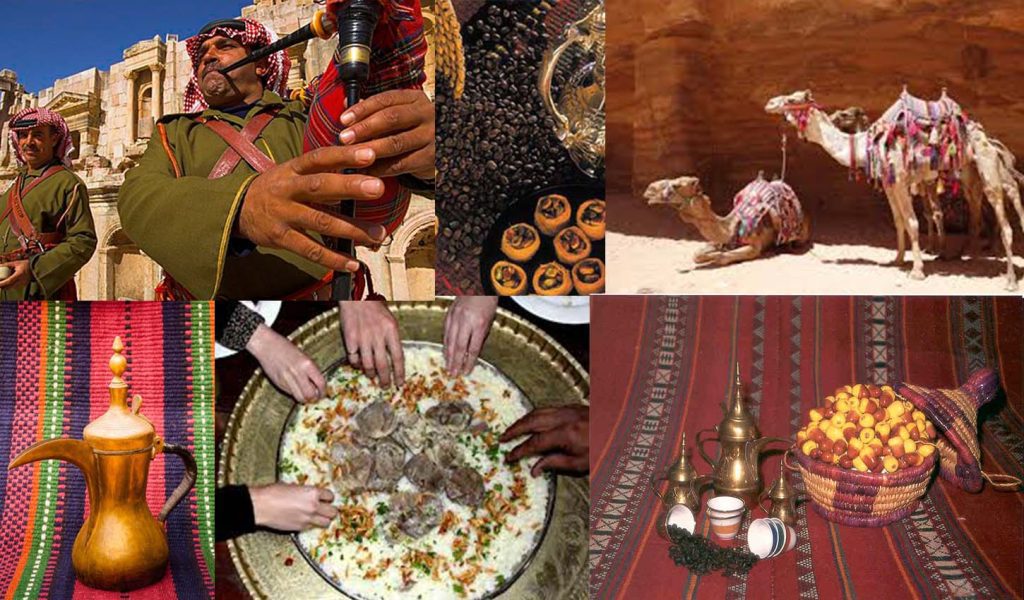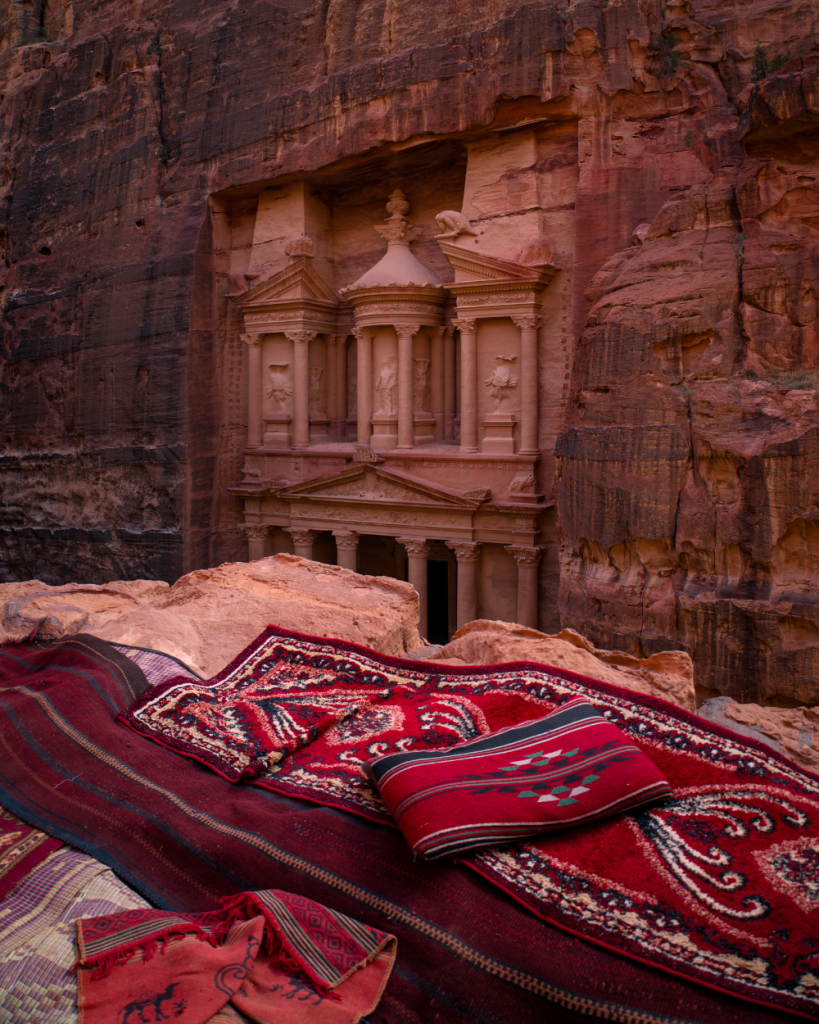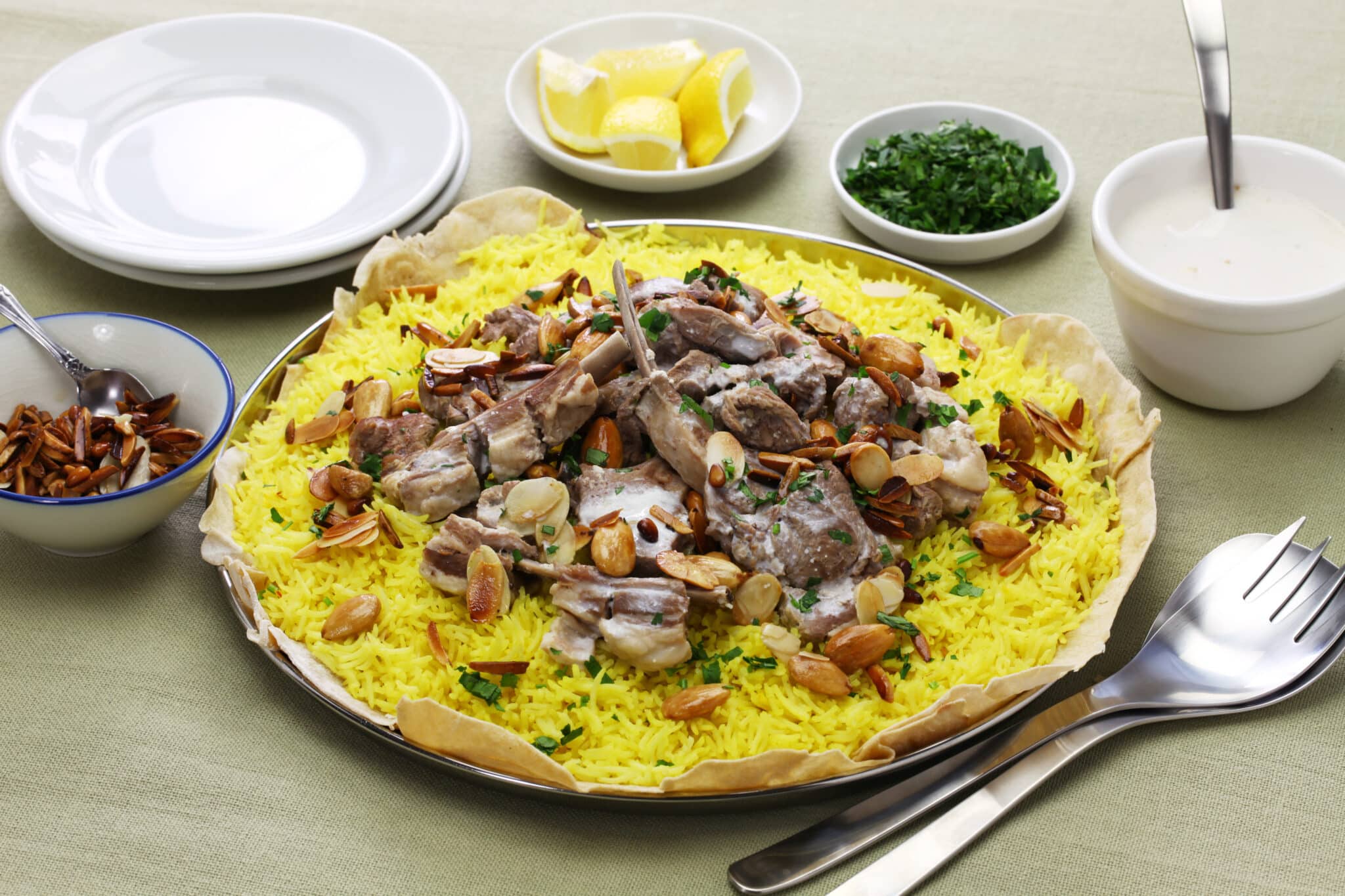Jordan Traditions
Jordan Daily life and social customs:
Jordan is an integral part of the Arab world and thus shares a cultural tradition common to the region. The family is of central importance to Jordanian life. Although their numbers have fallen as many have settled and adopted urban culture, the rural Bedouin population still follows a more traditional way of life, preserving customs passed down for generations. Village life revolves around the extended family, agriculture, and hospitality; modernity exists only in the form of a motorized vehicle. Urban-dwelling Jordanians, on the other hand, enjoy all aspects of modern, popular culture, from theatrical productions and musical concerts to operas and ballet performances. Most major towns have movie theatres that offer both Arab and foreign films. Younger Jordanians frequent Internet cafés in the capital, where espresso is served at computer terminals.


The country’s cuisine features dishes using beans, olive oil, yogurt, and garlic. Jordan’s two most popular dishes are msakhan, lamb or mutton and rice with a yogurt sauce, and mansaf, chicken cooked with onions, which are both served on holidays and on special family occasions. Daily fare includes khubz (flatbread) with vegetable dips, grilled meats, and stews, served with sweet tea or coffee flavored with cardamom.
Holidays that are celebrated in the kingdom include the Prophet Muhammad’s birthday, the two ‘ids (festivals; ‘Id al-Fitr and ‘Id al-Adha), and other major Islamic festivals, along with secular events such as Independence klausur schreiben lassen Day and the birthday of the late King Hussein.
Id al-Fitr (Arabic Festival of Breaking Fast), also called al-‘Id al-Saghir, first of two canonical festivals of Islam. ‘Id al-Fitr marks the end of Ramadan, the Muslim holy month of fasting, and is celebrated during the first three days of Shawwal ghostwriting, the 10th month of the Islamic calendar (though the Muslim use of a lunar calendar means that it may fall in any season of the year).
Eid al-Adha (Arabic Festival of Sacrifice), also called ‘Id al-Qurban or al-‘Id al-Kabir (Major Festival), is the second of two great Muslim festivals, the other being ‘Id al-Fitr. ‘Id al-Adha marks the culmination of the hajj (pilgrimage) rites at Mina, Saudi Arabia, near Mecca, but is celebrated by Muslims throughout the world. As with ‘Id al-Fitr, it is distinguished by the performance of communal prayer (salat) at daybreak on its first day. It begins on the 10th of Dhu’l-Hijja.
Food & Drink:
The cuisine varies, although most restaurants have a mixed menu that includes both Arabic and European dishes. Dishes include meze (small starters such as fool, humus, kube, and tabouleh); a variety of kebabs; Mahshi Waraq ’ in (vine leaves stuffed with rice, minced meat, and spices); musakhan (chicken in olive oil and onion sauce roasted ghostwriting on Arab bread); and the Jordanian specialty mansaf (stewed lamb in a yogurt sauce served on a bed of rice), a dish which is normally eaten with the hand. Sweets are very popular and include baklawa (pastry filled with nuts or honey); knafa (pastry filled with nuts or goat cheese); ataif (small fried pancakes filled with nuts or cheese and traditionally eaten during Ramadan); and mohallabiya (milk-based pudding perfumed with rose water or orange ghostwriter österreich). Drinking Arabic coffee is a ritual. Coffee tends to be very strong and is served in small cups (with plenty of coffee grounds at the bottom ghostwriter). Local beer, wine, and other types of alcohol are served in most restaurants and bars, except during the fasting month of Ramadan (non-Arabic nationals can drink alcohol only in hotels during Ramadan).

Trusted by
With award winning services we are trusted by many companies








